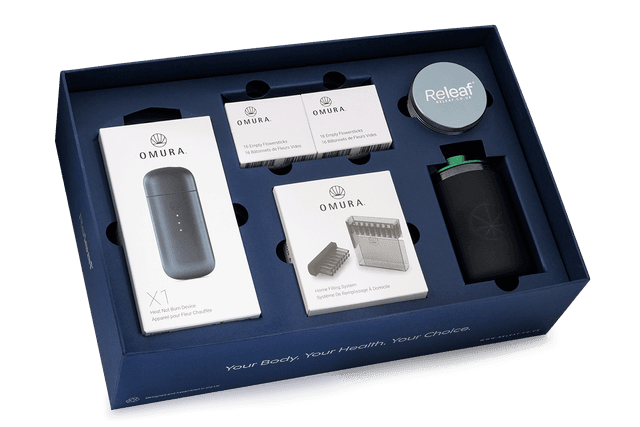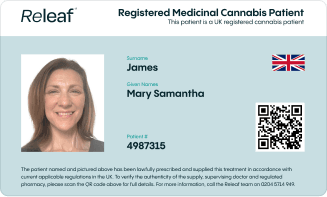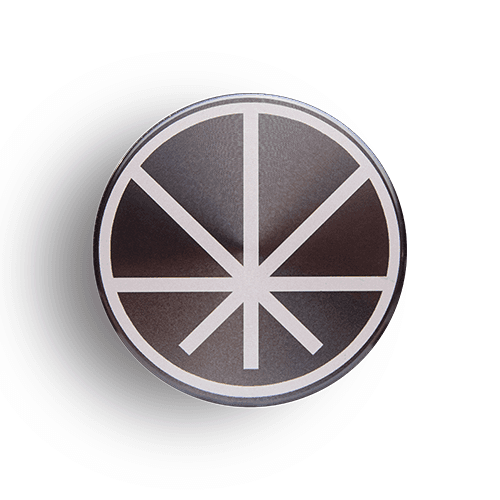In recent years, there has been growing interest in the potential benefits of cannabidiol (CBD) in alleviating the symptoms of Crohn's disease. CBD is a non-intoxicating compound derived from medical cannabis and hemp plants. Prescribable CBD-based treatments are available on the NHS, and also through private clinics.
How CBD can help with Crohn's disease
The three main ways that CBD may help with Crohn's disease symptoms are by reducing inflammation, promoting effective digestion, and relieving pain.
Reducing inflammation
Inflammation plays a significant role in the development and progression of Crohn's disease. It causes damage to the digestive tract, which leads to some of the condition’s most common symptoms. CBD has shown promise in reducing inflammation by interacting with the body's endocannabinoid system. This plays a crucial role in regulating immune responses and inflammatory processes.
Promoting effective digestion
CBD interacts with cannabinoid receptors in the digestive tract. This interaction helps to promote optimal gut motility. Gut motility is the body’s ability to contract and relax the gut to move food through the intestines through a process known as peristalsis.
In the context of Crohn’s disease, the most obvious benefit of gut motility is fewer episodes of diarrhoea. A less obvious, but highly important benefit, is the ability to get better nutritional value out of food and drink. This promotes overall health and helps to avoid the issues associated with malnutrition.
Relieving pain
Chronic abdominal pain is a common symptom of Crohn’s disease. It can be so debilitating that it has a serious, negative impact on an individual’s overall quality of life. CBD has long been appreciated for its potential analgesic (pain-relieving) properties. It may, therefore, help to make living with Crohn’s disease much more bearable.
Research studies on CBD and Crohn's disease
In recent years, there has been increasing interest in exploring the therapeutic effects of CBD for individuals with Crohn's disease. Research is still ongoing, but several recent studies have suggested that CBD may be extremely helpful in suppressing the symptoms of Crohn's disease.
Research on CBD and inflammation
One study found that CBD reduced inflammation in the intestines by decreasing the production of pro-inflammatory cytokines. Another study demonstrated that CBD inhibited the production of inflammatory molecules and promoted a reduction in intestinal inflammation.
Research on CBD and digestion
Another study explored the use of cannabis-based medication, which included CBD. The study found that it significantly improved symptoms such as abdominal pain, diarrhoea, and weight loss in patients with Crohn's disease.
Research on CBD and pain-management
There have been numerous studies on the use of cannabis-based medicines for chronic pain. Some of these have focused exclusively on the benefits of CBD specifically. A 2020 study investigated the effects of CBD on pain relief in individuals with chronic inflammatory conditions, including Crohn's disease. It found that CBD reduced pain scores and improved the quality of life in the participants.
While there is promising research on the use of CBD for Crohn's disease management, it’s important to acknowledge its limitations.
Restricted scope of research: Most of the studies conducted on the topic have been small-scale and there is a lack of consensus regarding the optimal dosages of CBD for Crohn's disease. Additionally, the long-term effects of CBD on the disease remain unclear.
Potential inconsistency: The lack of standardised CBD products makes it difficult to compare results across studies. Furthermore, the complex and varied nature of Crohn's disease makes it challenging to draw definitive conclusions about the efficacy of CBD as a standalone treatment.
The state of research in brief
There is enough scientific proof of the potential benefits of CBD for Crohn’s disease to support its use for symptomatic control. At present, however, CBD should not be seen as a potential replacement for conventional medication. It’s more likely to be a useful complement to existing treatments.
CBD dosage for Crohn's disease
Determining the appropriate dosage of CBD for Crohn's disease is a complex process that should be done in consultation with a healthcare professional. The recommended dosage can vary depending on various factors, including the severity of symptoms, individual body chemistry and the specific CBD product being used.
The dosage should be influenced by the product and the individual. On the product side, the concentration of CBD will strongly influence dosage. The quality of the product will also play a role in its efficacy. This can be hard (or impossible) to judge without testing. That’s one of the reasons why it’s important to buy CBD products from a reputable supplier.
On the individual side, the three key factors to consider are their weight, the speed of their metabolism, and their sensitivity to CBD.
For the best possible outcomes, always seek the advice of a healthcare professional that is both registered to prescribe CBD and who has experience doing so for gastrointestinal issues.
Potential side effects of CBD
The main side effects of CBD are a dry mouth and lethargy. It can also sometimes affect a person’s appetite and/or cause an upset stomach. These issues are usually mild and temporary, but still need to be understood.
Another significant consideration is the potential interaction between CBD and certain medications. CBD can impact the way certain medications are metabolised in the body, particularly those metabolised by the liver's cytochrome P450 enzyme system. This can potentially alter the effectiveness or increase the side effects of these medications. This puts a spotlight on how important it is to consult with a doctor before making any changes to your current treatment plan.
How to take CBD for Crohn's disease
There are three main ways to take CBD for Crohn's disease. These are inhalation, sublingual administration (tinctures), and oral ingestion (edibles). All of these methods are effective, so the choice often comes down to a person’s lifestyle, and the end result that is required.
For example, inhalation can be convenient at home but may not be practical in public spaces, at least not indoor ones. Tinctures and edibles, by contrast, are likely to be much easier to use outside the home. This means that it can be best to have a selection of different CBD products for different situations.
Another factor to consider is the time it will take to feel the effects. Inhalation is usually the fastest, followed by tinctures. Edibles can take significantly longer to be absorbed in the body, sometimes up to 90 minutes.
When selecting a CBD product, it’s important to consider factors such as the concentration of CBD, the presence of other cannabinoids and terpenes and the quality and reputation of the manufacturer. Look for products that are third-party tested for quality and potency to ensure their safety and effectiveness.
No matter what CBD product(s) you choose (or are prescribed), it’s important to start with a low dose and, if necessary, gradually increase it until the desired effects are achieved. This approach allows for careful monitoring of how the body responds to CBD and helps to identify the optimal dosage for symptom management.
CBD and Crohn's disease in brief
Research shows that CBD can help with the management of Crohn’s disease. Its use, however, is highly individual, just like the disease itself. This means that it can take some trial and error for each patient to find out what works for them. What’s more, the treatment may need to be updated from time to time as the patient’s condition and/or lifestyle changes.
That’s why our service is as flexible as you need it to be. As your condition, the related symptoms, and your life change, you can easily update your subscription, so you always have exactly what you need. Releaf understands that medical cannabis can be life-changing for many people. That's why we offer tailored monthly packages based on your cannabis prescription, specialist consultations for medical cannabis, and a unique medical cannabis card for protection.






